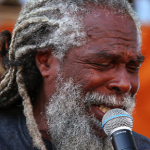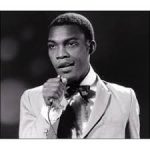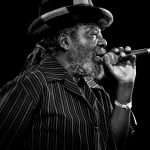Ninja Man
The Life and Legacy of Ninja Man: A Reggae Icon
IntroductionIn this article, we delve into the fascinating world of Ninja Man, a figure who has captured the imagination of many.
Ninja Man, known for his electrifying stage presence and controversial lyrics, is one of the most iconic figures in the world of reggae and dancehall music. Born Desmond John Ballentine on January 20, 1966, in Annotto Bay, Jamaica, Ninja Man rose to fame due to his unique style, lyrical prowess, and ability to captivate audiences with his theatrical performances. Despite facing numerous challenges throughout his career, Ninja Man’s influence on reggae music remains undeniable. This biography explores the life and legacy of this legendary artist. It delves into his early life, musical journey, and the controversies that shaped his career.
Ninja Man Early Life
Birth and Family Background
Desmond John Ballentine, who would later become known as Ninja Man, was born on January 20, 1966, in the picturesque town of Annotto Bay, located in the Jamaican province of St. Mary. Growing up in a modest family, Desmond’s early life was marked by the vibrant culture and rhythms of Jamaica. These influences would later become integral to his music career.
Move to Kingston
At the age of 11, Desmond’s family relocated to Kingston, the bustling capital city of Jamaica. This move proved to be a turning point in his life. Kingston’s dynamic music scene exposed him to a plethora of musical influences. It was here that Desmond discovered his passion for music and began his journey as a DJ.
The Rise of a Dancehall Star
Early Career and Transformation
Desmond began his career at the young age of 12, initially performing under the moniker “Double Ugly.” He honed his skills with the Black Culture sound system before transitioning to the Kilimanjaro organization in the early 1980s. It was during this time that he adopted the stage name “Uglyman,” and eventually, “Ninja Man,” after another artist with a similar name emerged. Ninja’s talent was undeniable, and he quickly gained recognition for his distinctive style and stuttering delivery.
Breakthrough Success
Ninja big break came in 1987 when he self-produced his first single, “Protection,” a duet with Courtney Melody. This track became an instant hit and opened the doors for further collaborations with renowned producers like Lloyd Dennis. In 1988, Ninja Man released successful duets such as “Cover Me” with Tinga Stewart and “Zig It Up” with Flourgon. This cemented his status as a rising star in the dancehall scene.
The Height of Fame and Controversy
Iconic Hits and Collaborations
Between 1989 and 1992, Ninja Man recorded prolifically, working with a variety of producers including King Jammy, Philip “Fatis” Burrell, and Steely & Clevie. His hits from this era, including “Murder Dem,” “Permit to Bury,” and “Test the High Power,” solidified his image as a formidable “rude boy” artist. Despite the controversy surrounding his lyrics, Ninja Man’s talent and charisma made him a beloved figure in Jamaica and beyond.
Rivalries and Notoriety
Ninja Man’s rivalry with fellow dancehall star Shabba Ranks became legendary. The two artists frequently traded lyrical jabs during concert clashes. This rivalry only heightened his fame and added to his reputation as a fearless performer. At the peak of his notoriety, Ninja Man adopted the flamboyant title “Original Front Tooth, Gold Tooth, Gun Pon Tooth Don Gorgon.” This inspired a wave of imitators with ninja-themed names.
Challenges and Personal Struggles
Backlash and Career Decline
By the early 1990s, Ninja Man’s gun-toting persona began to face backlash, as critics accused him of promoting violence. This criticism made it increasingly difficult for him to secure recording and performing opportunities. Despite working with producers like Henry “Junjo” Lawes and Junior Reid, Ninja Man’s career momentum slowed. By the mid-1990s, his recording activity dwindled significantly.
Personal Turmoil
Ninja Man’s personal life was fraught with challenges, including struggles with crack cocaine addiction. In 1997, he experienced a spiritual awakening and became a born-again Christian, performing gospel reggae under the name Brother Desmond. However, this transformation was not permanent, leading to mixed reactions from Jamaica’s Christian community.
Legal Troubles and Public Scrutiny
Run-Ins with the Law
Ninja Man’s life took a tumultuous turn in the late 1990s. Multiple legal issues kept his name in the headlines. He was accused of various crimes, including the serious charge of murdering a taxi driver in 1999. Although acquitted of murder, Ninja Man was convicted of possessing a firearm and ammunition. This resulted in a year-long jail sentence. During his incarceration, he reportedly faced further challenges, including an assault by prison guards.
Continued Controversy
Even after his release, controversy continued to follow Ninja Man. In 2001, he was hospitalized after sustaining machete wounds during a domestic dispute. He also faced charges of domestic assault and erratic driving, further damaging his public image. In 2002, Ninja Man’s profanity-laced tirade at the Reggae Carifest led to his removal from future festival lineups. This marked another setback in his career.
Legacy and Influence
Impact on Reggae and Dancehall
Despite the controversies and personal struggles that marred his career, Ninja Man’s impact on reggae and dancehall music remains profound. His distinctive style, lyrical dexterity, and fearless performances paved the way for future generations of artists. Ninja Man’s ability to blend social commentary with entertainment made him a complex figure. He was capable of both captivating audiences and sparking debate.
Inspiration for Future Artists
Ninja Man’s influence extends beyond his music, as his larger-than-life persona and commitment to his craft continue to inspire aspiring artists. His legacy is a testament to the power of resilience and reinvention in the face of adversity.
Conclusion
Ninja Man’s journey from a young DJ in Kingston to a reggae icon is a story of talent, controversy, and resilience. While his career was marked by both triumphs and challenges, Ninja Man’s indelible mark on the music industry endures. As a pioneer of dancehall music, his legacy continues to resonate with audiences worldwide. This secures his place as one of reggae’s most unforgettable figures.












